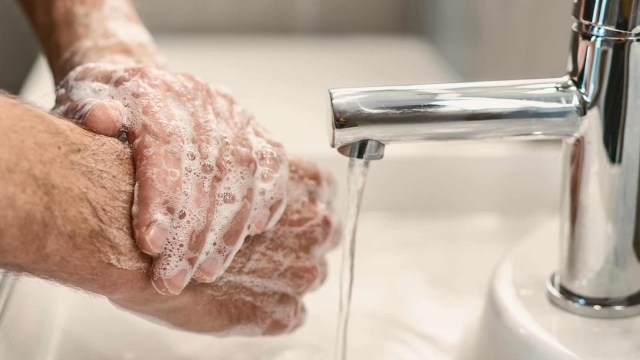Living with obsessive-compulsive disorder (OCD) can be an incredibly challenging experience. For those affected, the constant presence of intrusive thoughts and the compulsion to engage in repetitive behaviors can feel overwhelming. As parents and loved ones, witnessing a teenager struggle with OCD can be heart-wrenching, as we want nothing more than to see them thrive and enjoy their formative years to the fullest. Fortunately, there is hope on the horizon in the form of effective OCD treatment options specifically designed for teens.
Teen rehab programs geared towards OCD treatment provide a comprehensive and holistic approach to helping adolescents regain control over their lives. These specialized programs understand the unique needs and challenges faced by teenagers with OCD and are tailored to address them in an age-appropriate manner. With a focus on therapy, education, and support, rehab for teens offers a lifeline for those grappling with the debilitating effects of OCD.
In addition to targeting the core symptoms of OCD, such as obsessions and compulsions, these treatment programs also address any co-occurring mental health conditions that may be present. By adopting an integrated approach that combines evidence-based therapies, including cognitive-behavioral therapy (CBT), exposure and response prevention (ERP), and medication management when needed, rehab programs for teens provide a comprehensive foundation for lasting recovery.
Furthermore, addiction recovery services tailored specifically for teenagers with OCD can help address any substance abuse issues that may have developed as a coping mechanism. It is not uncommon for individuals with OCD to turn to substances in an attempt to alleviate symptoms or numb the distress caused by the disorder. Understanding and addressing these underlying issues is crucial to achieving long-lasting recovery and offering teenagers a path towards a healthier, more balanced life.
In the following sections, we will explore the various elements that make up effective OCD treatment for teens, delving into the different therapeutic modalities utilized and the specific skills and strategies that can empower adolescents to manage their OCD symptoms successfully. By unraveling the threads of OCD treatment, we hope to provide insight and guidance to parents, teens, and healthcare professionals who are invested in helping young individuals overcome the challenges of living with OCD and embark on a fulfilling journey towards healing and growth.
Understanding OCD: Causes and Symptoms
Obsessive-Compulsive Disorder (OCD) is a mental health condition that affects individuals of all ages, including teenagers. It is characterized by recurrent unwanted thoughts and repetitive behaviors or rituals that individuals feel compelled to perform. While the exact cause of OCD is not yet fully understood, researchers believe that a combination of genetic, environmental, and neurological factors may contribute to its development.
One of the primary symptoms of OCD is the presence of obsessive thoughts. These thoughts are often intrusive and distressing, causing individuals with OCD great anxiety and fear. Common obsessions may revolve around themes such as contamination or cleanliness, symmetry or order, or even fears of harm coming to themselves or others.
The second component of OCD involves compulsive behaviors or rituals. These repetitive actions are performed as a means to alleviate anxiety or prevent a feared event from occurring. For example, individuals with contamination obsessions may engage in excessive hand washing, while those with a fear of harm may repetitively check locks or appliances. The performance of these compulsions temporarily decreases the intensity of anxiety, leading individuals to rely on them as coping mechanisms.
It is important to note that OCD can significantly impact a teenager’s daily life, affecting their academic performance, social relationships, and overall well-being. Adolescents with OCD often experience a sense of shame or embarrassment about their obsessions and compulsions, which may lead to avoidance behaviors or isolation. Recognizing the causes and symptoms of OCD is crucial in order to provide appropriate support and effective treatment for teenagers struggling with this disorder.

Effective Treatment Options for Teenagers
OCD Treatment is crucial for teenagers struggling with this debilitating condition. Teen rehab programs provide specialized care and support tailored to address their unique needs.
-
Cognitive Behavioral Therapy (CBT): CBT has shown remarkable efficacy in treating OCD in teenagers. This therapy helps individuals identify their irrational thoughts and behaviors, enabling them to challenge and replace them with healthier alternatives. With the guidance of a trained therapist, teenagers can develop coping strategies to manage their OCD symptoms effectively.
-
Medication: In certain cases, medication may be prescribed as a part of OCD treatment for teenagers. Selective serotonin reuptake inhibitors (SSRIs) are commonly prescribed to help regulate brain chemicals and reduce anxiety. However, it’s important to note that medication should always be used in conjunction with therapy for optimal results.
-
Group Therapy: Participating in group therapy can be immensely beneficial for teenagers undergoing OCD treatment. Interacting with peers who face similar challenges provides a sense of understanding and support. Group therapy sessions offer a safe space for teenagers to express themselves, learn from others, and cultivate vital social skills.
Rehab for teens with OCD can pave the way for a successful journey towards addiction recovery. By combining these effective treatment options, teenagers can receive the support they need to regain control over their lives and overcome the obstacles posed by OCD.
Supporting Teenagers in Addiction Recovery
In the journey towards addiction recovery, teenagers require specialized support to navigate the challenges they face. With their unique circumstances and vulnerabilities, it is crucial to provide them with tailored assistance that addresses their specific needs.
One key aspect of supporting teenagers in addiction recovery is ensuring a safe and welcoming environment. Creating a nurturing space where they can openly express their thoughts and emotions is essential. By fostering an atmosphere of understanding and empathy, we can encourage them to discuss their experiences without fear of judgment.
Additionally, offering comprehensive resources and therapy options is vital in enabling their recovery. Teenagers in addiction recovery often benefit from a variety of therapeutic approaches, such as cognitive-behavioral therapy, group counseling, and family therapy. Providing access to these diverse treatment modalities equips them with the tools necessary to address underlying issues and develop healthier coping mechanisms.
Furthermore, a crucial element of supporting teenagers in addiction recovery involves involving their loved ones in the process. By engaging family members and close friends, we can establish a robust support system that extends beyond professional treatment. Inclusion and collaboration enable these individuals to provide ongoing encouragement, understanding, and reinforcement throughout the recovery journey.
In conclusion, supporting teenagers in addiction recovery entails creating a safe environment, giving them access to a range of therapeutic approaches, and involving their loved ones in the process. By tailoring our support to meet their specific needs, we can provide them with the necessary tools and resources to embark on a successful path towards recovery.






